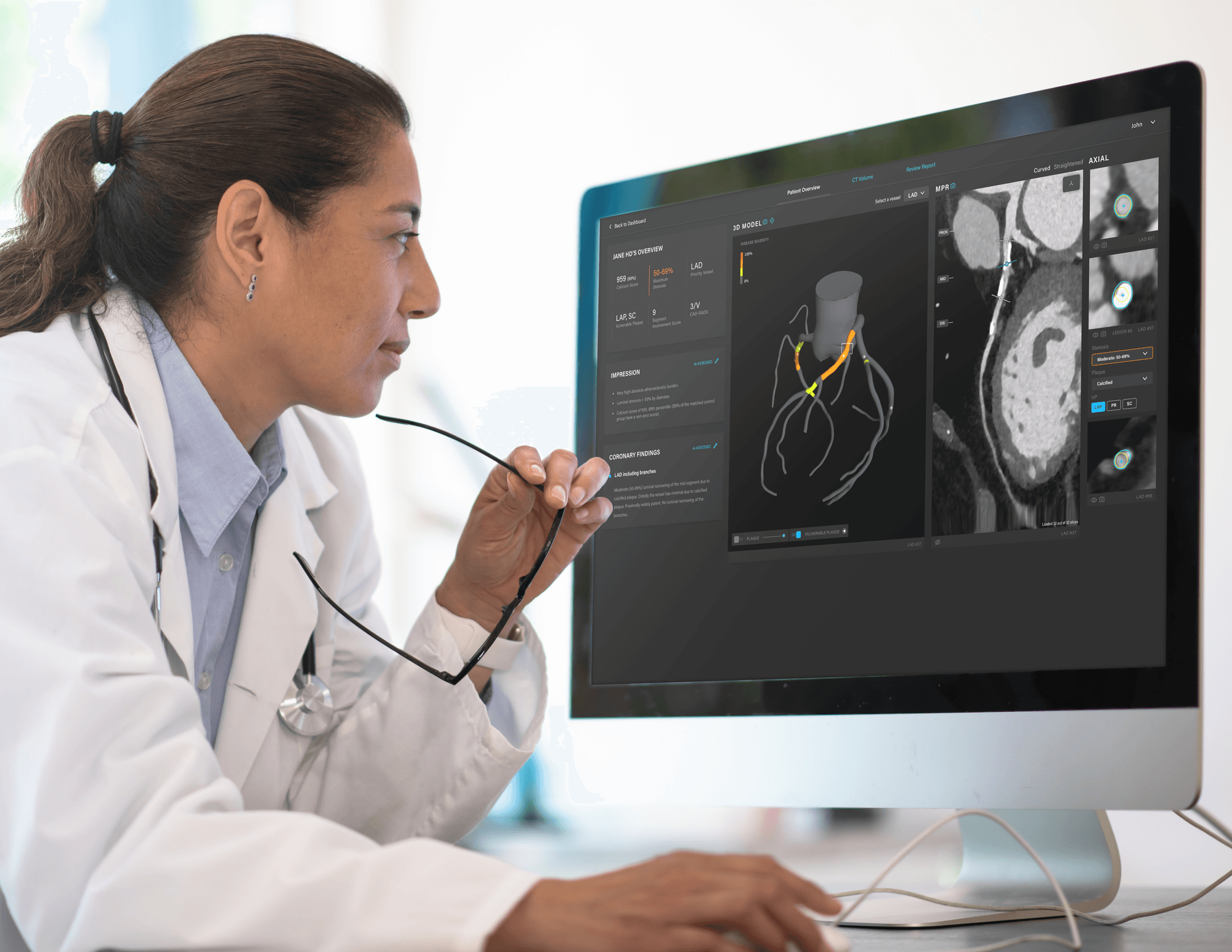AI in healthcare in Australia.
- Australian innovators have developed globally significant technologies.
- AI can provide clinical decision-making support.
- Analysts expect medical diagnosis and detection will be boosted by AI
Australia’s innovators in healthcare are developing world-leading technologies that promise to improve the health and wellbeing of people around the world.
Based on the transformative impact of artificial intelligence, Australia’s innovative leaders are forging new solutions to decades-old medical problems.
These include novel solutions to detect and diagnose coronary artery disease, AI-based respiratory imaging and ventilation analysis, and comprehensive X-Ray analysis for lung disease.
Using AI, computers can capture huge data sets and create models to guide decision making.
A report by analysts PwC said the developments would have a major impact to personalise healthcare in the future.
“AI has transformational power for two reasons: the explosive growth in the amount of data, generated by billions of connected devices, coupled with huge advances in computational power and processing speeds,” the Adopting AI in healthcare report said.”
“In healthcare, the potential for disruption is limitless due to the amount of available healthcare data.”
Key AI innovators are already changing the paradigm for healthcare, especially in early detection and diagnosis. Through the identification of minor differences between a patient cardiac scan, for example,
A key use case of AI is early detection and diagnosis. AI allows computers to identify small anomalies between an individual’s health data and that of similar patients, or the wider population.
Transforming cardiac healthcare with AI – Artrya.
AI has the potential to transform cardiac healthcare, notably the detection.
Diagnostic procedures have changed little since the advance of the CT scan enabled clinicians to take complex images of the heart.
But AI-based solution, Artrya Salix, allows healthcare professionals to quickly and accurately assess a comprehensive range of coronary artery disease biomarkers, including the hard-to-detect vulnerable plaque.
The use of AI was critical to the development of this technology, which is currently being trialled at radiology clinics. Underpinning the web-based solution is its base of more than 30,000 heart scan images.
Salix then creates a personalised cardiac model, revealing with an easy-to-read traffic light system, any concerns with the patient’s heart health.
This is a major step for heart disease diagnosis because it exposes the underlying cause of heart attack. This is when vulnerable plaque breaks off arteries, allowing it to move through the vessel and potential block it, causing a heart attack.
Artrya Salix offers the benefit to patients that it is non-invasive. This reduces their risk of complications from other exploratory diagnostic interventions.
Impact of AI in lung health – 4D Medical.
Australian companies are also deploying AI solutions in a bid to improve lung health.
4D Medical, which has an office in Melbourne, offers a lung diagnostic tool to enable the non-invasive analysis of respiratory and ventilation through a patient’s lungs.
Based on X-Rays from hospital imaging systems, the 4D Medical innovation allows clinicians to understand air flow with detailed “maps” of lung motion and function throughout their breath.
In this way, the solution can detect where there are differences in movement in a patient’s lungs and the impact of those deficits.
This is then delivered in an intuitive colour-coded visualisation with areas of low, average and high ventilation.
4D Medical has declared it a “revolutionary technology” that will usher in “the future of lung health”.
Future of AI in healthcare for thoracic medicine – Annalise CXR.
AI-based solutions are shaping future healthcare in thoracic medicine.
The Annalise CXR algorithm was trained on hundreds of thousands of chest X-Rays to support clinician decision-making for 124 different thoracic conditions.
Designed in collaboration with clinicians, the solution also features a confidence bar to provide more certainty around diagnoses.
Announcing itself as “the world’s most comprehensive Al clinical decision-support solution”, the solution is designed to help clinicians to interpret chest radiographs.
